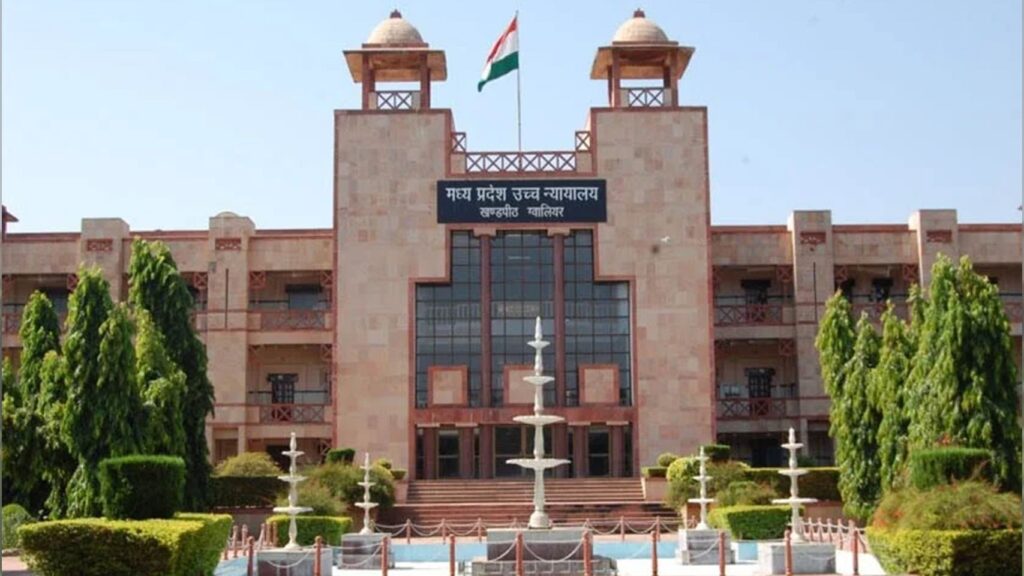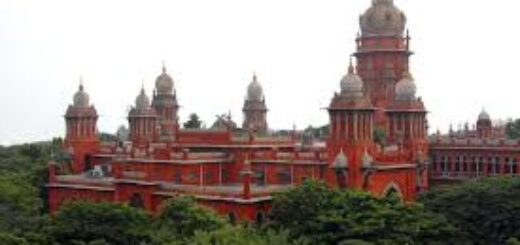Madhya Pradesh High Court cancels a departmental inquiry against a revenue officer, stating that a quasi-judicial officer is protected under the Judges (Protection) Act when acting in good faith.

The Madhya Pradesh High Court has canceled the departmental proceedings against an Additional Collector, stating that a quasi-judicial officer is protected under the Judges (Protection) Act, 1985 for actions taken in good faith. The Court reviewed a writ petition that sought to annul the order denying the petitioner’s request to stop the departmental inquiry and to dismiss the charge sheet. Justice Sanjay Dwivedi noted that the petitioner is entitled to protection under the 1985 Act since he was acting as a judicial officer when he made decisions under Sections 165 (6) and (7) of the Code of 1959. Therefore, the disciplinary action against him is not valid and should be dismissed.
The petitioner was represented by Senior Advocate Sanjay K. Agrawal and Advocate Amreshwar Pathak, while the respondent was represented by Government Advocate Girish Kekre. While serving as Additional Collector, the petitioner granted permission under Sections 165(6) and 165(7-b) of the Madhya Pradesh Land Revenue Code, 1959. It was claimed that he did not follow proper procedures, resulting in a loss to the government, and that he lacked the authority to grant such permission. Consequently, a charge sheet with 13 charges was issued against him. The petitioner challenged the inquiry by filing this petition, but no interim relief was granted, and the departmental proceedings are still ongoing.
The Senior Counsel for the petitioner challenged the actions of the respondents, arguing that the charge sheet was unlawful because the petitioner is protected under The Judges (Protection) Act, 1985. He pointed out that a circular from the State Government in 2021 classified revenue officers as ‘Judges’ according to Section (2) of the 1985 Act. Therefore, he claimed that the proceedings initiated against the petitioner, who granted permission under Section 165, should not lead to disciplinary action. He further argued that an inquiry can only begin if there is a hidden motive from the authority in granting permission or using power under Section 165 of the 1959 Code. In this case, the EOW conducted an inquiry and reported that the petitioner acted without any hidden motive while serving as Additional Collector and granting permission under Section 165.
It was also stated that the petitioner’s actions did not result in any financial loss to the Government. Thus, it was argued that there was no reason to issue a charge sheet or subject the petitioner to disciplinary proceedings. The Court examined whether the petitioner deserved protection as a Judge while granting permission under Sections 165 (6) and (7) of the 1959 Code, referring to the definition of ‘Judge’ in the Act. The Court noted that this definition includes not only judges but also officials acting in their official or quasi-judicial roles.
Revenue Officers are recognized as Judges during judicial proceedings, as stated in an order from the Revenue Department dated 25.03.2021. This is documented as Annexure P/10, which includes the definition of ‘Judge’ from the Judges (Protection) Act, 1985, granting protection from the State Government. The court noted that this order clarifies that the proceedings for applications under Section 165 of the Code of 1959 are quasi-judicial. The court referenced its recent decision in Premnarayan vs. The State of Madhya Pradesh and others, where it supported its previous rulings, stating that officers acting as quasi-judicial authorities are protected when they act in good faith.
The Additional Collector is recognized as a judicial officer and is entitled to the protections outlined in the 1985 Act. In this case, both the EOW and Lokayukt have investigated and concluded that the petitioner acted without any hidden motives or personal gain when granting permission under the 1959 Code while handling applications under Sections 165(6) and (7). Therefore, starting disciplinary action against the petitioner seems unjust and arbitrary, violating the protections afforded to him. If the ongoing disciplinary proceedings continue despite the lack of evidence against the petitioner, it would unfairly prevent him from being considered for promotion to the IAS cadre. This situation reflects a misuse of power aimed at excluding the petitioner from such opportunities. The court noted that it must also consider that similar empowerment has been challenged in several cases, and the High Court has upheld the orders made by the petitioner regarding permissions under Sections 165(6) and (7) of the 1959 Code, despite the ongoing disciplinary action. The court believes there is a flaw in the actions of the respondent authorities, which is not acceptable.
A judge can face action if they act outside their duties. However, in this case, the petitioner did nothing wrong and stayed within their quasi-judicial role. Therefore, starting disciplinary action against the officer is not appropriate and should not continue, as it goes against the law, the court stated. The court further explained that if the respondent’s lawyer’s argument is accepted, it would mean that every judge could face criminal and civil cases under subsection (2) of Section 3. This would lead to absurd results and make subsection (1) of Section 3 of the 1985 Act meaningless, rendering that clause ineffective. As a result, the petition was granted.
Cause Title: Kailash Bundela vs. The State of Madhya Pradesh and Others
Appearances:
Petitioner: Senior Advocate Sanjay K. Agrawal and Advocate Amreshwar Pathak
Respondent: Government Advocate Girish Kekre.









